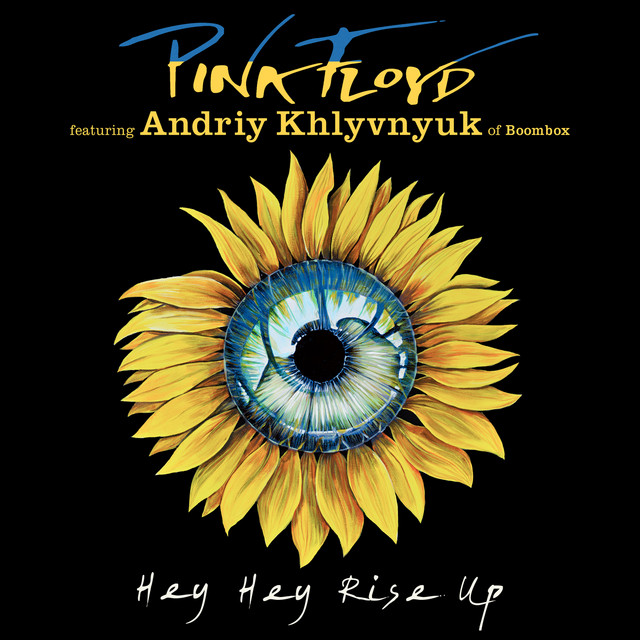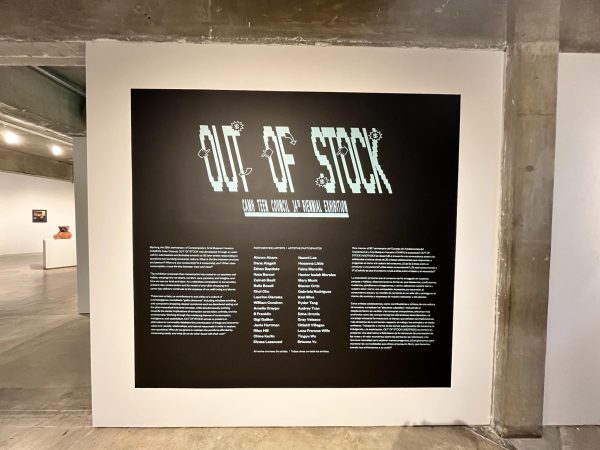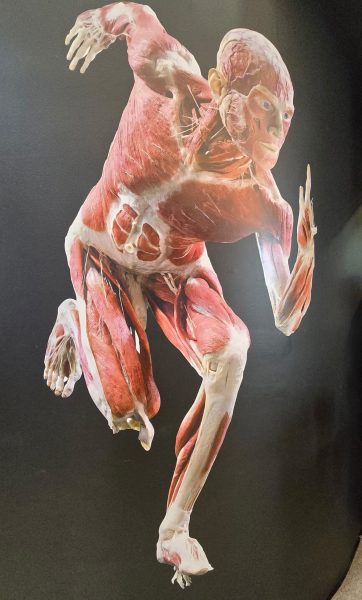Pink Floyd reunites to release “Hey Hey Rise Up” in response to war in Ukraine
The cover, which showcases Ukraine’s national flower, the sunflower, of Pink Floyd’s recently released protest song “Hey Hey Rise Up”
On April 8th, legendary rock band Pink Floyd ended its 28-year long music drought, which started in 1994 with the Division Bell album’s release. While Pink Floyd’s “Hey Hey Rise Up” was greeted by eager fans, the inspiration for the song is the opposite of a happy occurrence: a war.
Due to the war in Ukraine, Ukrainian homes and businesses have been bombed. Ukrainian families have been uprooted. Ukrainian citizens are fighting on the front lines. The war also hits home for the band’s guitarist, David Gilmour, whose daughter-in-law is Ukrainian artist Janina Pedan. It is for these reasons that Pink Floyd decided to release the protest song. The song’s anti-war sentiments are echoes of their previous records, “The Wall,” “The Final Cut,” and “Us And Them.”
The track includes guitarist David Gilmour, drummer Nick Mason, and bassist Guy Pratt, all from Pink Floyd, along with keyboardist Nitin Sawhney. The vocals of Andriy Khlyvnyuk, frontman of the Ukrainian rock band BoomBox, are laid over these musicians’ instruments.
The song opens with choral vocals. Not long after, Gilmour just strums chords. He and the other members play while the Boombox frontman, now on the frontlines in Ukraine, sings the Ukrainian patriotic song “The Red Vibranium in the Meadow.” As the song continues, Gilmour’s signature sound makes an entry with his “string-bending” guitar solo. The solo, reeking of passion in its “string-bending” glory, has the same sound the band maintained through their years of activity. There are several guitar licks throughout the song. For those unfamiliar, guitar licks are short series of notes used to spice up solos or other melodic lines. The licks in this song also display the continuation of the band’s sound, as they are reminiscent of previous songs, such as “Money.”
Although the song was a continuation of the band’s sound, the band was missing a critical piece from their original members. Due to a feud, Pink Floyd’s bassist, singer, songwriter, and co-founder Roger Waters embarked on a solo-career. Waters, guitarist and lead vocalist Syd Barrett, drummer Nick Mason, and keyboardist and vocalist Richard Wright founded the London-born band in 1965. After guitarist Syd Barrett went on a downward spiral resulting from drug use, Gilmour was introduced into the band as a replacement.
The band’s demise arose, not from a lack of fans or poor records, but an internal conflict. According to a Rolling Stone article, Nick Mason was the sole member against the band splitting. But that did not stop the glass shards from flying, due to, in my opinion, Water’s arrogance.
Mason has said, “But I think the problem is Roger doesn’t really respect David. He feels that writing is everything, and that guitar playing and the singing are something that, I won’t say anyone can do, but that everything should be judged on the writing rather than the playing.”
He goes on to state Water’s assumption about the fate of Pink Floyd, which is where the arrogance makes it entry.
“I think it rankles with Roger that he made a sort of error in a way that he left the band assuming that without him it would fold,” Mason said. “It’s a constant irritation, really, that he’s still going back to it.
Although Roger Waters did not make an appearance on this track as many had hoped, it proves that Pink Floyd, and especially David Gilmour, are still a force to be reckoned with. The protest song itself is impactful. Despite this, the name (and the now-broken vow to never reunite) brought behind it signifies the weight of the war in Ukraine.
Your donation will support the student journalists of Carnegie Vanguard High School. Your contribution will allow us to cover our annual website hosting costs and fund field trips, competition fees, and equipment. We appreciate your support!

Sasha Cabral is a senior at CVHS. A musician and an artist, she imbues everything she does with creativity. She loves rock music, the colors red, black...







